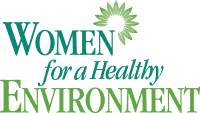Contact Women for a Healthy Environment with any questions, comments, or concerns. We will do our best to get back to you promptly. Thank you for your interest in our network!
Nondiscrimination and accessibility notification statement
-
7371 Thomas Blvd
Pittsburgh, PA 15208 - (412) 404-2872
- info@womenforahealthyenvironment.org
